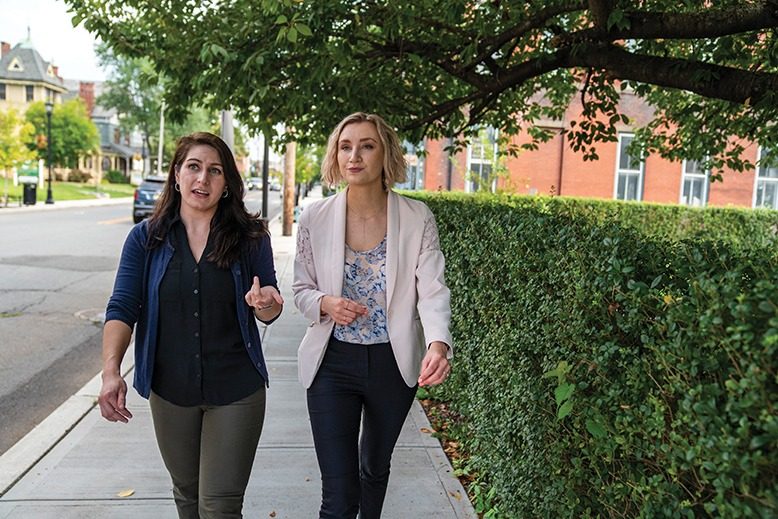
For victims of domestic violence and sexual assault, living in a rural area can make help hard to find.
That’s a key reason why Safe in Hunterdon—an organization that serves the largely rural Hunterdon County—has become such a vital part of the community over the last 40 years.
“Isolation is a very effective tool in keeping a victim in an abusive relationship,” says Rebecca Ramos, domestic-violence response team coordinator for Safe in Hunterdon. “I’ve worked in urban areas, and the most frequent reporter of domestic violence is a neighbor calling the police. It’s much more difficult to do that here, in rural areas.”
The organization—which was established by the New Jersey Department of Children and Families and provides all of its services to clients free of charge—was launched back in 1978, offering counseling. Today, the group runs the Safe House, which clinical director Renee Walton describes as “a place where families, men, women and children can get short-term emergency housing,” plus additional resources, including legal advocacy, a 24-hour hotline, and domestic-violence and sexual-assault response teams.
But last year, the group’s services were put on hold for the first time in its history, followed by a relaunch this summer.
During that time, an agency in a neighboring county provided assistance to Safe in Hunterdon’s clients.
“Given that public transportation is nonexistent in Hunterdon, it was important that there be services locally,” Ramos says. “Everyone has been very thankful that we’re back.”
[RELATED: Nonprofit Helps Put New Jerseyans on the Path to Self-Sufficiency]
There is much to be thankful for, considering what Safe in Hunterdon can do for survivors.
“Our clients very rarely get just one service,” Ramos explains. “We have different departments, and we have them in-house, because domestic violence doesn’t happen in a vacuum. It impacts all aspects of [a client’s] life,” from housing to transportation to work.
It’s entirely up to a client to decide which of Safe in Hunterdon’s services to use and to what extent. “We’re not in the business of should,” says Ramos. “We base everything that we do on client choice.”
Safe in Hunterdon uses a client-focused approach, Ramos says, because “a survivor knows their experience best.” In many cases, someone will leave the Safe House, which clients are free to do at any time, and later return. “They may not be ready, but it also may not be safe for them to leave the relationship in that moment,” says Ramos.
On average, survivors of violence tend to leave an abuser seven times, Walton says.
“Our whole model is that these survivors have no control,” Walton says. “Our goal is to give them that control back.”

